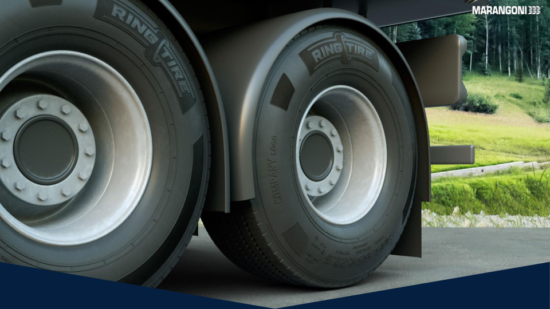The importance of the UK tyre retreading sector to sustainability

During this year’s National Tyre Distributors Association (NTDA) Tyre Industry Conference, Phil Robinson, Marangoni senior country manager for UK, ROI and UAE gave an impassioned and illuminating presentation on the subject of “The importance of retreading to sustainability”, which highlighted both the pressures and the opportunities associated with retreading. The word “sustainability” has become something of a by-word in the tyre business during 2023, which makes it all the more important that we take heed of what that term means.
Phil Robinson began by setting the language of sustainability in context. In recent years, the UK population has shifted from chucking everything in the same black bin to habitually sorting our own recyclables. That trend towards energy efficiency and sustainability consciousness is only going to continue.
In the tyre sector, retreading has the potential to offer unique recycling and therefore sustainability opportunities. Specifically, while a new truck tyre requires 83 litres of oil to be made, a retread offering much the same performance requires just 26 litres of oil. Similarly, manufacturing a retread uses 65 per cent less energy and retreading saves 95 per cent of CO2. Continuing the theme, a quality tyre regrooved and then retreaded twice effectively triples the mileage achieved by the original casing.
That, in turn, has a massive impact on other aspects of the tyre business, the automotive trade and industry, as well as the economy as a whole. Indeed, while linear economy sees tyres made, used and wasted. Retreading dovetails into the circular economy with quality tyres and retreading: minimising the initial use of virgin raw materials in the first life tyre, adopting ultra-efficient manufacturing techniques, returning tyres, regrooving them even before reuse and then retreading begins and ultimately recycling that which cannot be regrooved, reused and retreaded again.
What’s more, the entire process involves the widest possible range of human resources. Specifically, the circular retread economy creates opportunities for scientists in the research and development stages, engineers in manufacturing and testing, technician in the service and supply before repeating that cycle of job opportunities in the retreading, distribution, retail and recycling industries. In other words, minimal waste and maximum opportunity.
UK retreading facing unprecedented pressures
Nevertheless, the retreading sector is facing numerous significant challenges. Namely, rising energy, material, personnel and transport costs. That’s why as many as six independent retreaders within the UK’s already highly consolidated retreading sector have closed their doors in the last 12 to 18 months.
And it’s worth pointing out that those half-a-dozen retreading operations are spread across the entire UK – two in England, two in Wales and one each in Scotland and Northern Ireland. In other words, the unprecedented pressures facing the UK retreading sector are a nationwide reality.
At the same time as highlighting sustainability and the external pressures facing retreaders, it is also worth explaining that the six businesses that closed their doors did so for a number of reasons. At least two of them opted to focus on the tyre distribution and service side of tyres as opposed to retread manufacturing. Others had no clear succession plan and so opted to exit. So, just as tyre retail at large has to face recruitment and retention questions, so the retreading business has to consider questions of human resource sustainability.
Nevertheless, Phil Robinson’s points are undeniably well made and extremely timely while government considers the UK’s relationship with Chinese-produced truck tyres and while the European authorities continue investigating the same products.
Concluding his presentation, Robinson asked the rhetorical question “can we do better?” Of course, the answer has to be made in the affirmative. And, for his part, Robinson understandably stated: “make the sustainable choice, choose retreads!”. But earlier in the conference there were several signs that Robinson’s is not the only voice calling for change. Whether it was KwikFit owner ETEL, whose ProjectTree programme aims to improve sustainability at the very start of a tyre’s life or in new tyre production with John Howe, managing director, Michelin Tyre Plc, clearly agreeing with Robinson: “I would love to change ‘tomorrow everything is sustainable’ to ‘today everything is sustainable’.” Wouldn’t we all?
Phil Robinson, Marangoni senior country manager for UK, ROI and UAE, speaking at the 2023 NTDA Tyre Industry Conference (Photo: NTDA)


 i247
i247

Comments